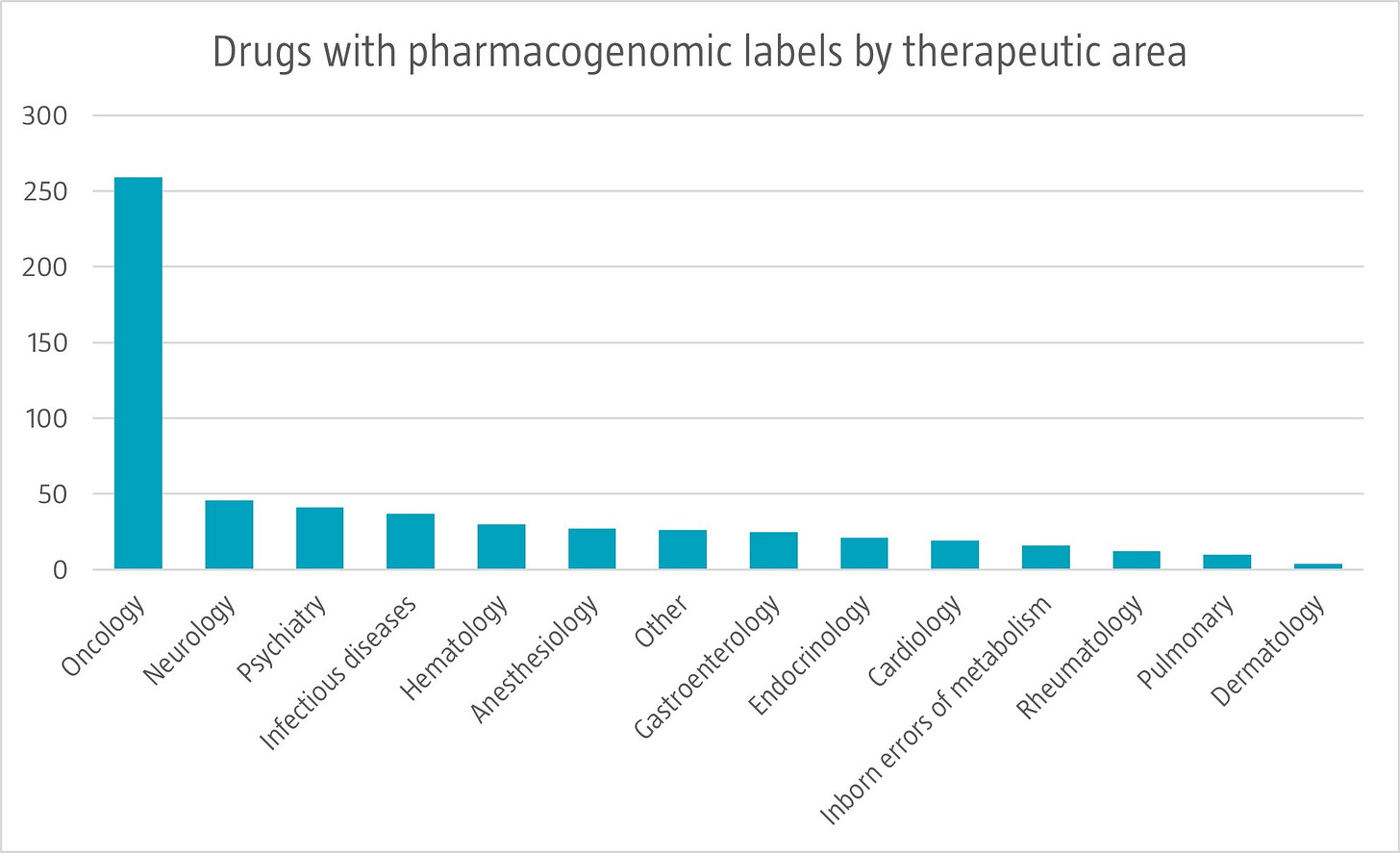Genetic response
In 1972, Belgian molecular biologist Walter Fiers was the first to sequence the DNA of a complete gene. Two decades later in 1990, the Human Genome Project was started with the goal of sequencing all the genes of the human genome. Only in 2022 did the project sequence the complete human genome without gaps. These scientific achievements are impressive but what are the current practical applications for sequencing on daily treatment of patients? In the US, healthcare regulator FDA requires, recommends or suggests genetics testing in close to 600 drugs to investigate how a patient will react to a specific therapeutic. This is useful because patients can have different responses to drug with some having a strong and effective response while others have no response leading to problems associated with drug buildup. Other applications of genetic sequencing include non-invasive prenatal testing and transplant organ rejection testing.
Source: US Food & Drug Administration, October 2024.


